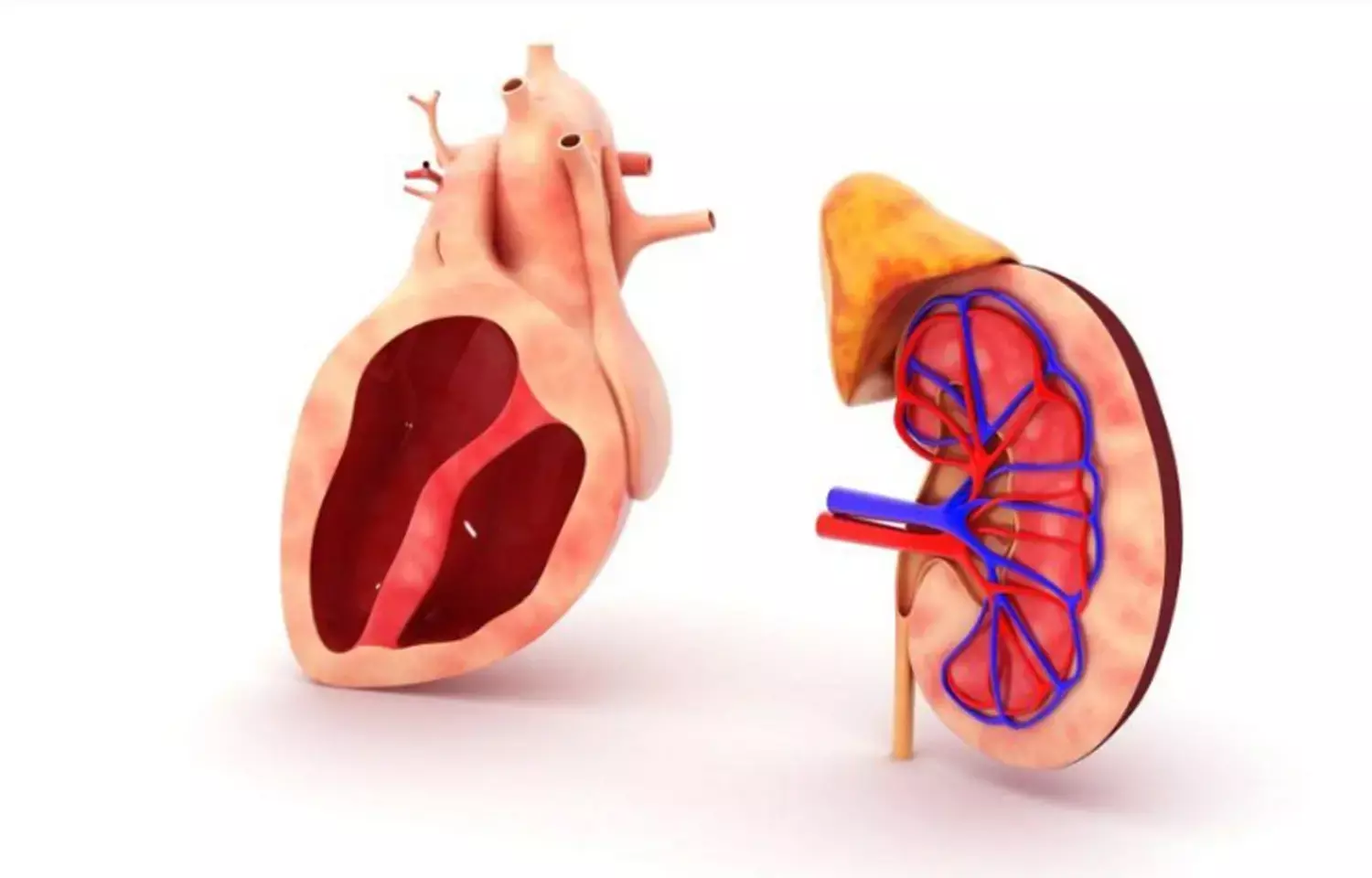- Home
- Medical news & Guidelines
- Anesthesiology
- Cardiology and CTVS
- Critical Care
- Dentistry
- Dermatology
- Diabetes and Endocrinology
- ENT
- Gastroenterology
- Medicine
- Nephrology
- Neurology
- Obstretics-Gynaecology
- Oncology
- Ophthalmology
- Orthopaedics
- Pediatrics-Neonatology
- Psychiatry
- Pulmonology
- Radiology
- Surgery
- Urology
- Laboratory Medicine
- Diet
- Nursing
- Paramedical
- Physiotherapy
- Health news
- Fact Check
- Bone Health Fact Check
- Brain Health Fact Check
- Cancer Related Fact Check
- Child Care Fact Check
- Dental and oral health fact check
- Diabetes and metabolic health fact check
- Diet and Nutrition Fact Check
- Eye and ENT Care Fact Check
- Fitness fact check
- Gut health fact check
- Heart health fact check
- Kidney health fact check
- Medical education fact check
- Men's health fact check
- Respiratory fact check
- Skin and hair care fact check
- Vaccine and Immunization fact check
- Women's health fact check
- AYUSH
- State News
- Andaman and Nicobar Islands
- Andhra Pradesh
- Arunachal Pradesh
- Assam
- Bihar
- Chandigarh
- Chattisgarh
- Dadra and Nagar Haveli
- Daman and Diu
- Delhi
- Goa
- Gujarat
- Haryana
- Himachal Pradesh
- Jammu & Kashmir
- Jharkhand
- Karnataka
- Kerala
- Ladakh
- Lakshadweep
- Madhya Pradesh
- Maharashtra
- Manipur
- Meghalaya
- Mizoram
- Nagaland
- Odisha
- Puducherry
- Punjab
- Rajasthan
- Sikkim
- Tamil Nadu
- Telangana
- Tripura
- Uttar Pradesh
- Uttrakhand
- West Bengal
- Medical Education
- Industry
Multiple benefits of Finerenone- Reduces renal-risk besides cardiac protection in diabetics

Finerenone, a nonsteroidal, selective mineralocorticoid receptor antagonist, has been shown to reduce albuminuria in short-term trials involving patients with chronic kidney disease (CKD) and type 2 diabetes. Now, in a study published in NEJM, FIDELIO-DKD trial investigators have shown that finerenone slows CKD progression and reduces cardiovascular morbidity and mortality among patients with advanced CKD and type 2 diabetes.
Evidence supports a pathophysiological role for overactivation of the mineralocorticoid receptors in cardiorenal diseases, including CKD and diabetes, through inflammation and fibrosis that leads to progressive kidney and cardiovascular dysfunction. Strategies to decrease aldosterone activation for improving cardiovascular outcomes have attracted interest in the past 3 decades and steroidal drugs like spironolactone and eplerenone have been used but they have a significant side-effect profile (gynecomastia, erectile dysfunction, etc) and renal safety concerns due to the risk of hyperkalemia. In contrast, the non-steroidal dihydropyridine finerenone is a selective inhibitor and has better tolerability and safety profile.
Bakris et al. report have reported in NEJM, the results of the phase 3 Finerenone in Reducing Kidney Failure and Disease Progression in Diabetic Kidney Disease (FIDELIO-DKD) trial. In this double-blind trial, they randomly assigned 5734 patients with CKD and type 2 diabetes in a 1:1 ratio to receive finerenone or placebo. All the patients were pre-treated with a maximum tolerable dose of renin-angiotensin system blocking drugs.
1. The primary composite outcome, assessed in a time-to-event analysis, was kidney failure, a sustained decrease of at least 40% in the eGFR from baseline, or death from renal causes.
2. The key secondary composite outcome, also assessed in a time-to-event analysis, was death from cardiovascular causes, nonfatal myocardial infarction, nonfatal stroke, or hospitalization for heart failure.
During a median follow-up of 2.6 years, a primary outcome event occurred in 17.8% of patients in the finerenone group and 21.1% in the placebo group (hazard ratio, 0.82; P = 0.001). A key secondary outcome event occurred in 13.0% and 14.8% in the respective groups (hazard ratio of 0.86, P = 0.03). Overall, the frequency of adverse events was similar in the two groups. The incidence of hyperkalemia-related discontinuation of the trial regimen was higher with finerenone than with placebo (2.3% and 0.9%, respectively), but this was markedly lower than in trials of dual RAS blockade (4.8% with combination therapy with a direct renin inhibitor and an ACE inhibitor or ARB and 9.2% with dual ACE inhibitor and ARB therapy)
To summarise, they found a benefit of finerenone as compared with placebo with respect to CKD progression among patients with relatively advanced CKD and diabetes and thus for persons at high risk for kidney-related (and heart-related) events. A cardiovascular benefit was evident early (as soon as a month) and continued in the long-term; the kidney-related benefit was seen after 1 year.
Further insight into the cardiorenal efficacy and safety of finerenone in patients with type 2 diabetes and less advanced CKD will be provided by the ongoing Finerenone in Reducing Cardiovascular Mortality and Morbidity in Diabetic Kidney Disease (FIGARO-DKD) trial.
The complete article is available as Bakris GL, Agarwal R, Anker SD, et al. Effect of finerenone on chronic kidney disease outcomes in type 2 diabetes. N Engl J Med. DOI: 10.1056/NEJMoa2025845.
Available from: https://www.nejm.org/doi/full/10.1056/NEJMoa2025845
MBBS, MD , DM Cardiology
Dr Abhimanyu Uppal completed his M. B. B. S and M. D. in internal medicine from the SMS Medical College in Jaipur. He got selected for D. M. Cardiology course in the prestigious G. B. Pant Institute, New Delhi in 2017. After completing his D. M. Degree he continues to work as Post DM senior resident in G. B. pant hospital. He is actively involved in various research activities of the department and has assisted and performed a multitude of cardiac procedures under the guidance of esteemed faculty of this Institute. He can be contacted at editorial@medicaldialogues.in.
Dr Kamal Kant Kohli-MBBS, DTCD- a chest specialist with more than 30 years of practice and a flair for writing clinical articles, Dr Kamal Kant Kohli joined Medical Dialogues as a Chief Editor of Medical News. Besides writing articles, as an editor, he proofreads and verifies all the medical content published on Medical Dialogues including those coming from journals, studies,medical conferences,guidelines etc. Email: drkohli@medicaldialogues.in. Contact no. 011-43720751


